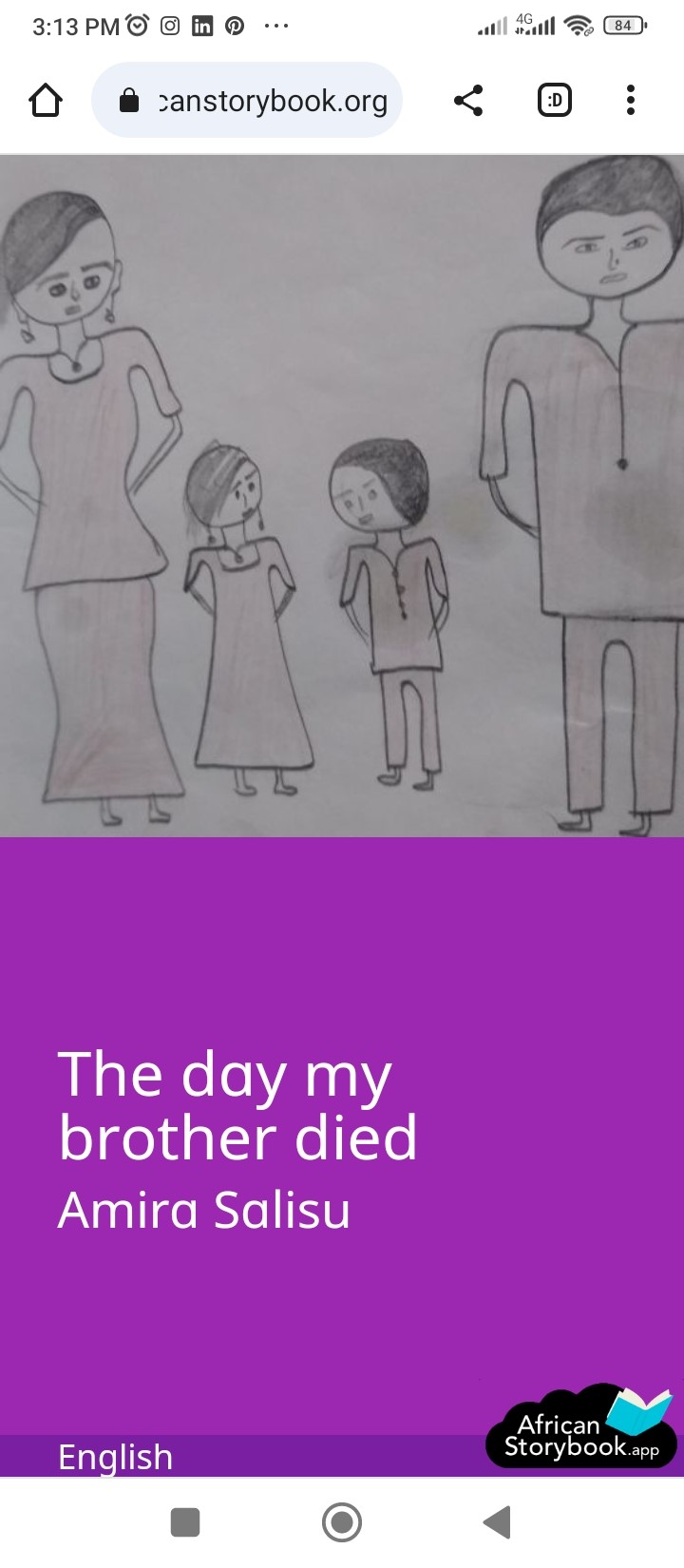

Mimi Werna

As I passed through immigration at Kotoka International Airport, I exchanged a smile with the official who handed me my passport. Adjusting my backpack securely and moving forward, I noticed the word "AKWAABA" - meaning "WELCOME" in the Twi language - beautifully painted across a section of the airport wall. My ears guided my gaze towards a dance troupe warmly welcoming teenage guests from Barbados. I observed their lively dance moves accompanied by captivating drumming. Immersed in the vibrant scene, I gradually approached them. Eventually, the music ceased, and we all dispersed, each heading towards our respective destinations.
I travelled to Accra for the AfLIA Conference, but this trip also provided an opportunity to meet with Ofosu Frimpong, an African Storybook (ASb) Champion in Ghana. ASb has, for many years, collaborated with local partners to create and publish storybooks in various Ghanaian languages. I had organised for some digital tablets donated by Lenovo to be delivered to him to enable him to further expand his work in local schools and libraries. Ofosu planned to utilise the tablets to support the use of the various digital tools on the ASb platform as well as to access ASb storybooks to share with young readers.
The main purpose for visiting Accra, was however, to join librarians and other educators at the 5th AfLIA Conference and the 7th African Library Summit which were held together. These events provided a platform to discuss the future of learning, libraries, and sustainable development in Africa. Additionally, we explored the open knowledge ecosystem and platforms that facilitate the sharing of this valuable knowledge.


Mimi presenting at the AfLIA conference
I was excited to talk about and share ASb's digital resources during my presentation titled "Decolonising Children's Literature Through the African Storybook's Digital Tools." The presentation highlighted ASb's efforts in developing and utilising culturally relevant, openly licensed picture storybooks in local languages through the ASb website, Reader App and Maker App, all available on the Google Play Store and the App Store.
The Apps have been specially designed for both online and offline use to accommodate contexts in which there are electricity and or connectivity constraints. Elaborating on how the Apps can be used I explained how the ASb Reader App provides open access to African stories, enabling librarians, teachers, children and parents to downloaded stories onto their devices. Once the story is downloaded, it goes to the e-library where it is stored and can be read offline.
These apps have been specifically designed to be used both online and offline, catering to contexts where there may be electricity or connectivity constraints. To elaborate on how the apps can be utilised, I explained that the ASb Reader App allows librarians, teachers, children, and parents to download African stories onto their devices. Once downloaded, the stories are stored in the e-library and can be read offline. The ASb Maker App, on the other hand, empowers anyone interested in creating stories. Users can either use their own illustrations or access illustrations from the picture bank within the app. Once users have an internet connection, they can upload their stories to the ASb website, where they can be read using the Storybooks App.
With ASb's mission of promoting open and equitable access to literacy, embracing African stories, perspectives, and cultural heritage, the initiative tackles the critical shortage of children's storybooks in African languages, which are essential for children's literacy development. As of March 2023, the website boasted 3,800 original titles, 7,266 translations, and representation of 236 languages. This expanding collection of unique storybooks and translations in indigenous African languages, all freely accessible as Open Educational Resources (OER), means that children now have access to reading resources in their mother tongue. One book at a time, ASb is actively contributing to the decolonisation of children's literature in Africa.

Source: Amira’s story: www.africanstorybook.org/reader.php?id=35590&a=0&d=0
During the presentation, I also shared a touching anecdote about a workshop I facilitated for UNICEF in Kano, northern Nigeria, where a young girl named Amira used the ASb Maker App to write and share her heart-wrenching story about the day bandits killed her brother. This powerful tool enabled her to express and discuss this tragic incident for the first time since it occurred in 2018.
After each day of the conference, I took leisurely walks, immersing myself in the essence of "Ghana on the streets." I made a stop at "Kwekwu and Elijah's Roadside Stall" to enjoy some fresh kube (green coconuts brimming with coconut water), all while taking in the vibrant sounds and sights of Osu, a central neighbourhood in Accra. The delegates also had the opportunity to visit the AfLIA Secretariat, located in the newly built AfLIA headquarters on the outskirts of Accra. On the final evening, we gathered together for a social event, celebrating the successful conference with dinner, music, dance, and camaraderie. We eagerly anticipated future opportunities to convene and share our endeavours in promoting literacy and learning in African languages.